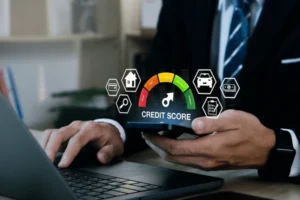Paying off debt is one of the most powerful steps you can take toward financial freedom. It not only relieves stress and improves your cash flow, but it also plays a significant role in shaping your credit score. However, the relationship between debt repayment and credit scores isn’t always as straightforward as people expect. While eliminating debt generally improves your credit health, the way it affects your score depends on the type of debt, how it’s paid off, and your overall credit profile. In this article, we’ll explore how paying off debt influences your credit score across different dimensions, and how to ensure your efforts lead to long-term credit improvement.
📊 Understanding the Components of Your Credit Score
Your credit score is calculated based on five key factors: payment history, amounts owed, length of credit history, credit mix, and new credit inquiries. When you pay off debt, you’re primarily impacting the “amounts owed” and “payment history” categories, which together make up 65% of your score. Reducing your outstanding balances lowers your credit utilization ratio—the percentage of your available credit that you’re using. A lower utilization ratio signals responsible credit behavior and can lead to a noticeable increase in your score. Additionally, consistently making on-time payments while reducing debt strengthens your payment history, which is the most heavily weighted factor. Understanding how these components interact helps you see why debt payoff is such a valuable credit-building strategy.
💰 Paying Off Credit Card Debt and Utilization Ratio
Credit card debt is one of the most influential types of debt when it comes to your credit score. This is because it directly affects your credit utilization ratio, which is a major factor in the “amounts owed” category. If you’re using more than 30% of your available credit, lenders may view you as overextended. Paying off or significantly reducing your credit card balances can dramatically improve your score. For example, if you have a total credit limit of $10,000 and carry a balance of $6,000, your utilization is 60%. Paying that down to $1,000 drops your utilization to 10%, which is ideal. The lower your utilization, the better your score. However, it’s important to keep the accounts open after paying them off. Closing them can reduce your available credit and increase your utilization ratio again, potentially hurting your score.
🏦 Paying Off Installment Loans Like Auto or Personal Loans
Installment loans—such as auto loans, student loans, or personal loans—are treated differently than revolving credit like credit cards. When you pay off an installment loan, your credit mix may change, and your score could dip slightly if it was your only installment account. However, the long-term impact is usually positive. Successfully paying off an installment loan shows lenders that you can manage long-term debt responsibly. It also reduces your overall debt load, which is beneficial for your credit profile. If you’re planning to apply for a mortgage or another large loan, having fewer outstanding debts can improve your debt-to-income ratio and make you a more attractive borrower. While the short-term effect may vary, the long-term benefits of paying off installment loans are clear and substantial.
🔐 How Debt Payoff Affects Your Credit History Length
One factor that can be affected by paying off debt is the length of your credit history. If you close an account after paying it off—especially an old one—it could shorten your average account age, which may slightly lower your score. This is particularly true for credit cards and other revolving accounts. To avoid this, consider keeping older accounts open even after they’re paid off, especially if they don’t have annual fees. This helps maintain your credit history length and shows that you’ve managed credit over time. The longer your credit history, the more positively it reflects on your score. It’s a subtle but important part of maintaining a strong credit profile after becoming debt-free.
📉 Why Your Score Might Drop Temporarily After Paying Off Debt
It might seem counterintuitive, but your credit score can sometimes drop slightly after you pay off a debt. This usually happens when you close a long-standing account, eliminate a type of credit from your mix, or your utilization ratio changes due to reduced available credit. These drops are typically short-lived and not a cause for concern. Over time, the benefits of reduced debt and improved financial health will outweigh any temporary fluctuations. The key is to maintain good habits—like paying bills on time and keeping credit usage low—after the debt is paid off. Remember, credit scores are dynamic and reflect your overall financial behavior, not just isolated actions.
📈 Long-Term Benefits of Being Debt-Free
Paying off debt has long-term benefits that go far beyond your credit score. It improves your financial flexibility, reduces stress, and allows you to save and invest more. From a credit perspective, being debt-free means lower risk of missed payments, better chances of loan approval, more favorable interest rates, and stronger negotiating power with lenders. It also positions you well for major financial milestones like buying a home, starting a business, or retiring comfortably. A clean credit report with minimal debt is a powerful asset in today’s financial landscape. The peace of mind and financial freedom that come with being debt-free are invaluable.
🧠 Smart Strategies for Paying Off Debt Effectively
To maximize the credit score benefits of debt payoff, consider using smart strategies that align with your financial goals. Start by targeting high-interest debts first to save money and reduce financial strain. Alternatively, use the snowball method—paying off the smallest debts first—for motivation and momentum. Avoid closing accounts immediately after paying them off, especially older ones that contribute to your credit history. Check your credit report to ensure debts are marked as paid and dispute any inaccuracies. Continue using credit responsibly to maintain a strong score. Working with a credit advisor or financial planner can also help you create a personalized debt payoff plan that improves your credit profile and sets you up for long-term success.




